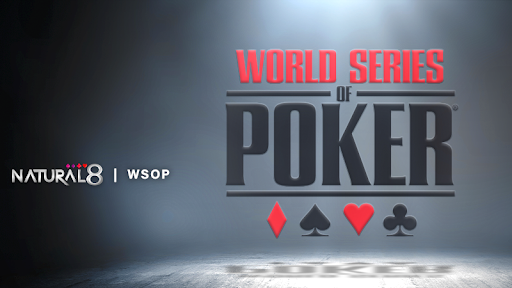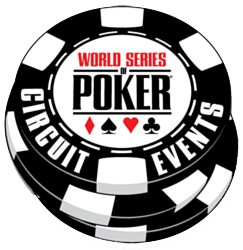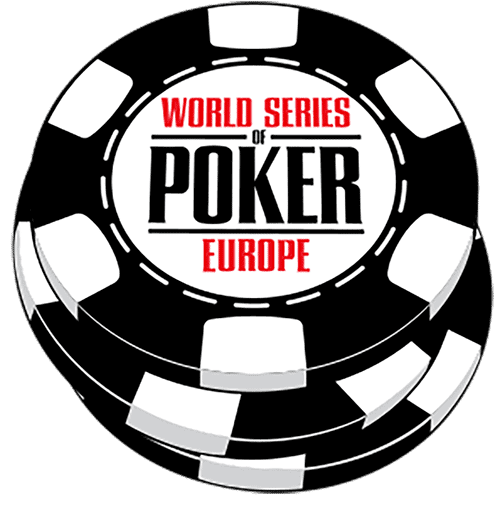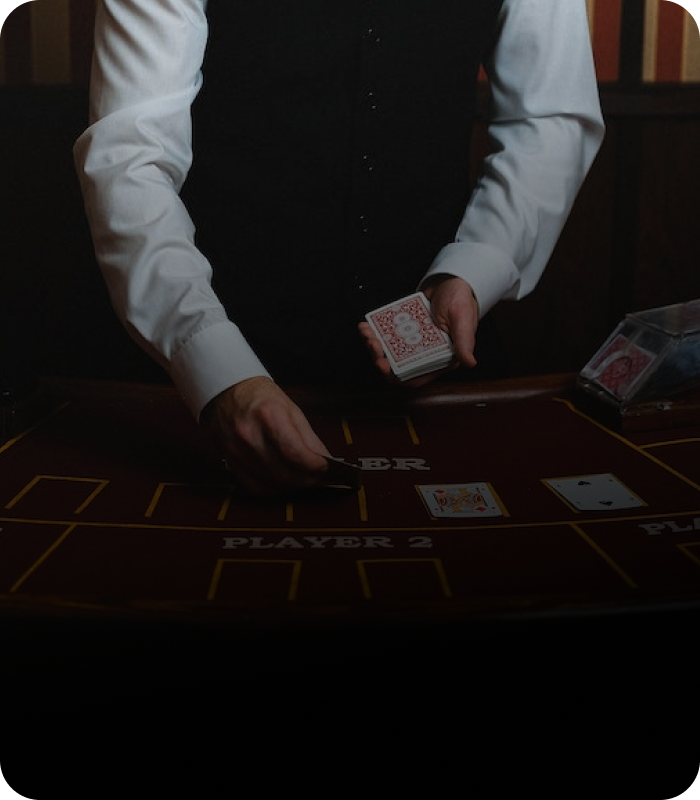Win your way to APT Manila Classic 2025 | Over 120 seats to be won | $50,000 Main Event bonus for Natural8 Qualifiers only
-
World Series of Poker

All You Need To Know About The World Series of Poker
The World Series of Poker is a collection of tournaments held annually in Las Vegas, Nevada. Dating back to 1970, the WSOP is a truly historic and prestigious event, held in high regard by professionals and amateurs alike.
Read on and we’ll reveal everything you need to know about the official World Series of Poker.
Why Play in the WSOP?
There are many reasons why someone might want to play a World Series of Poker event. But the main factor is almost certainly the glory. Although other major poker events do exist, such as the World Poker Tour, none carry the same level of prestige as the WSOP.
The top professional players are used to winning large sums of money, in both cash games and tournaments. So how is it possible to distinguish themselves from other players? To show the world how good they really are?
If only there were an annual collection of tournaments, bringing together the world’s best poker pros to compete for titles. And that’s exactly why the World Series of Poker was devised.
A Brief History of the WSOP
The idea for a series of events to crown the world’s best poker player was first born in the late 1960s. But it was Las Vegas casino owner Benny Binion who finally made it happen. In 1970, the first ever WSOP took place.
The Early Days
The original WSOP format was a series of cash games in five different disciplines, including 5 Card Stud, 7 Card Stud and Texas Hold’em. At the end of the meeting, each player voted on the best player, eventually crowning Johnny Moss as the first ever champion.
The following year, five separate tournaments were held. Once again, Moss would claim the big prize, winning the first World Series of Poker Main Event. By the end of the 1970s, the WSOP had grown to a collection of 12 tournaments, with commemorative bracelets issued for the first time in 1976.
Throughout the 1980s and 90s, the WSOP format remained largely static. After all, this was long before the online poker boom which made the game much more accessible. Tournament buy-ins were fixed at between $1,000 and $5,000, with a $10,000 fee for the annual Main Event. In 1995 and 1996, the series had grown to 24 events in total.
2000 Until Today
By the early 2000s, people were beginning to play poker on the internet and the game was expanding quickly. The 2003 WSOP saw a total of 36 tournaments, but that year’s Main Event changed things forever. Chris Moneymaker took down the Main Event, having qualified through a satellite.
This type of online poker game, sponsored by the many emerging internet poker rooms, allowed regular Joes to qualify for small sums of money. Inspired by Moneymaker’s success, subsequent WSOP fields exploded. The 2006 Main Event remains the largest prize pool in history at $82,512,162 with a $12 million first prize.
Not only did field sizes and prize pools continue to expand, but so did the number of tournaments. In 2009, the series had grown to 59 events, but by the 2022 WSOP, there were a total of 118. Admittedly, 78 of these took place online, but this was necessary to rebuild in a post COVID-19 world. Even before lockdowns, the 2019 WSOP saw a total of 90 live events.
WSOP Expansions
Over the years, the World Series of Poker has sought to expand, with some projects proving more successful than others. Let’s take a quick look at the various expansions attempted by WSOP organizers.

WSOP Circuit
The World Series of Poker Circuit kicked off in 2005. The idea was to play a collection of satellite events across the USA, hosted by Harrah's casinos. Each location held a $10,000 buy-in event, while the best performing players were invited to a final Tournament of Champions.

WSOP Europe
Probably the most successful of the WSOP expansion attempts is the World Series of Poker Europe. Launched in 2007, the first event was held in London, UK and propelled Annette Obrestad to fame. The Norwegian winner of the inaugural WSOPE Main Event was just 18 years old at the time.
Other WSOP Expansions
WSOP Africa
This short-lived experiment began in 2010, with the first of just three series held at the Emerald Resort & Casino in South Africa.
WSOP Asia Pacific
In 2013, the WSOP tried to move into the Asia Pacific region, hosting a series of tournaments in Melbourne, Australia. Daniel Negreanu claimed the first Main Event bracelet, but the series did not return after 2014.
WSOP International Circuit
Since 2015, the circuit has expanded globally, with tournaments played on multiple continents. From the 2017/18 season, there have been 13 international events on the calendar, with winners contesting the WSOP Global Casino Championship.
WSOP Online
Prompted by COVID-19 lockdowns, the WSOP looked to continue their annual series via the internet in 2020 and 2021. Subsequently, there now exists a dedicated WSOP online series where players can join the WSOP and play online poker.
WSOP Hardware: Bracelets and Rings

Tournament winners earn more than just prize money when taking down a prestigious WSOP title. There’s a coveted piece of jewelry to be won, too.
Although bracelets have long been awarded to tournament winners, in the early days of the WSOP it was not the case. The bracelet tradition began in 1976, though some players objected, claiming they were too feminine. As a result, gold watches were issued for the 1982 series. But these were also unpopular, so officials reverted to bracelets the following year.
Today, the hardware is supplied by a company called Jostens, though several other manufacturers have been used over the years. The 10 karat gold bracelet also features black diamonds and rubies, which are used to create depictions of the playing card suits.
If you’re not lucky enough to secure a bracelet, the next most prestigious thing would be a WSOP Circuit ring. Take down any event on the circuit and you’ll collect a gold ring.
Notable WSOP Winners
When Espen Jorstad defeated Adrian Attenborough to win the 2022 World Series of Poker Main Event, he etched his name into poker history. Jorstad joins an illustrious list of names that features some of the very best players in the world.
Let’s take a look at some other notable WSOP title winners.
Phil Hellmuth
When Phil Hellmuth Jr won the 1989 Main Event, he was the youngest ever to do so, aged 24. That stood until 2008, when 22 year old Peter Eastgate claimed the record. Hellmuth is also the only player to win both the WSOP and WSOPE Main Event bracelets.
Now into his late 50s, his longevity is incredible. In winning his 16th WSOP bracelet, Hellmuth moved a full six ahead of his nearest rivals. In addition, he has more final table appearances than any other player in WSOP history, including 14 runner-up finishes.
His most notable near miss came in the 2011 $50,000 Poker Players Championship, the premier WSOP high roller event. Losing to Brian Rast, Hellmuth still pocketed $1,063,034 for second place.
Doyle Brunson
One of the old-school legends at the World Series of Poker, “Texas Dolly” is still playing the game deep into his 80s. A back-to-back WSOP Main Event winner in 1976 and 1977, only Phil Hellmuth has won more than Brunson’s 10 bracelets.
Known as a ferocious cash game player, Brunson excelled in No Limit Texas Holdem. Many would try to mimic his style, paving the way for younger generations to succeed in the game. In fact, his book “Doyle Brunson’s Super System: A Course in Power Poker” would become the definitive manual for crushing cash games.
Phil Ivey
Arguably the greatest all-round poker player in poker history, Phil Ivey burst onto the scene around the turn of the millennium. The first of his 10 bracelets came in 2000, aged just 23. And just two years later, he claimed three more at the 2002 WSOP.
Phil Ivey is the youngest player to secure 10 WSOP bracelets, doing so aged 38. Phil Hellmuth had previously achieved the same feat aged 42. But perhaps the most remarkable thing about Ivey, is that none of his 10 bracelets came in a Texas Hold’em tournament.
Johnny Chan
One of just four players to reach double figures, Johnny Chan was the first to collect 10 WSOP bracelets. The man known as the “Orient Express” won consecutive Main Event titles in 1987 and 1988. Incredibly, he also finished second in 1989, denied a third straight success by Phil Hellmuth.
Chan’s heads up victory over Erik Seidel in the 1988 Main Event was immortalized in the 1998 movie Rounders, starring Matt Damon.
Daniel Negreanu

This popular Canadian player first won a WSOP bracelet in 1998 at the tender age of 23. Negreanu’s feat made him the youngest ever bracelet winner at that time, earning him the nickname “Kid Poker”.
Daniel Negreanu is undoubtedly one of the greatest players in WSOP history. In addition to a total of six bracelets and a WSOP Circuit ring, no player has more World Series cashes. Further, he was the first (and currently only) person to win the WSOP Player of the Year title twice.
WSOP Fun Facts
#1 - The First WSOP Main Event Prize
We already talked about how the first ever WSOP title was decided upon by a vote after a series of cash games. But in 1971, the first Main Event proper was also won by Johnny Moss. His prize for that achievement? $30,000. Just six players paid the $5,000 buy-in, with Moss taking the entire pool.
#2 - The Biggest Main Event Field
When Jamie Gold claimed the $12 million first prize in the 2006 Main Event, he beat the biggest field in WSOP history. But do you know how many entrants took part? It was a massive 8,773 players.
#3 - The Winner of the First WSOP Bracelet
Johnny Moss won a trophy for being voted the first ever WSOP champion and bracelets were not issued until 1976. Although successes prior to that date are now classed as bracelet wins, no jewelry was awarded at the time. So the first player to ever receive a WSOP bracelet was actually Doyle Brunson, for his 1976 Main Event win.
#4 - The First Non-American Main Event Winner
Given its origins, it’s no surprise that the World Series of Poker was dominated by Americans for a long time. In 1989, Johnny Chan was the first non US-born player to win the Main Event. Although originally hailing from China, Chan was actually a US citizen. A year later, Iranian-born Mansour Matloubi became the first non-American to win the Main Event.
WSOP Schedule at Natural8
12th December 2021 - 9th January 2022
WSOP Winter Circuit - $100,000,000 Guaranteed with 18 Circuit Rings
March 24th - April 17th 2022
WSOP Spring Circuit - $100,000,000 Guaranteed with 18 Circuit Rings
Starts 3rd April 2022
WSOP Road To Vegas - Qualify for the WSOP Main Event in Las Vegas with a travel package worth more than $10,000. Package includes Main Event entry worth $10,000, travel expenses worth $1,200, and accommodation for 7 Nights in Bally’s Las Vegas.
August 14th - 27th September 2022
WSOP Online - 33 WSOP Bracelet Events
October 12th - November 3rd 2022
Road to WSOPE - Qualify for the €10,350 Main Event Online. Satellites from €25
December 4th 2022 - January 9th 2023
WSOP Winter Circuit - $150,000,000 GTD with 18 Circuit Rings
March 5th - 28th 2023
WSOP Spring Circuit - $100,000,000 GTD with 18 Circuit Rings
July 2nd - 31st 2023
WSOP Summer Circuit - $100,000,000 GTD with 18 Circuit Rings
August 20th - Oct 2nd 2023
WSOP Online - 33 Online Bracelets & Continental Leaderboards
March 3rd - April 1st 2024
WSOP Super Circuit - $100,000,000 GTD with 18 Circuit Rings
Dec 1st - Dec 15th 2024
WSOP Paradise Online - Two WSOP Bracelets & A Chance to Qualify to the LIVE $50M Super Main Event Day 3
And More Events Coming Soon
*Please visit WSOP for a full schedule of events

























